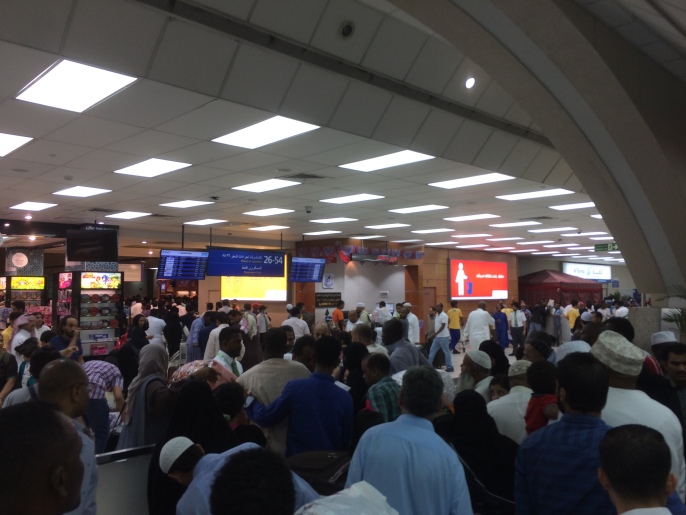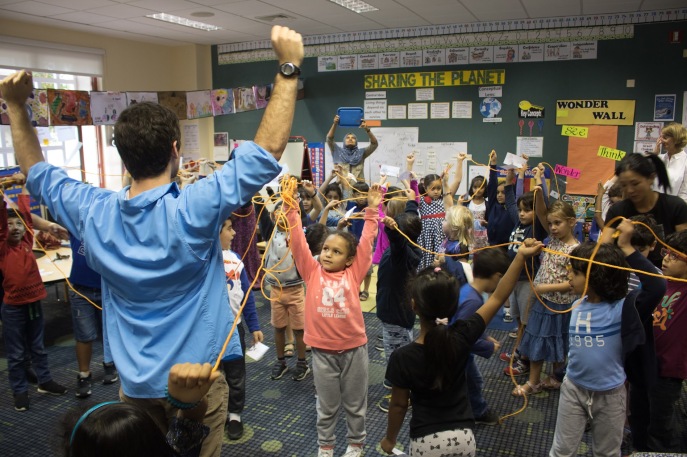by Travis Nielsen
Getting to IMCC5 can be a long and complicated journey. From most parts of the world, it takes at least two flights to get there and you may have to cover a series of costs for accommodation, food, and other incidentals along the way. If you’re lucky, your school or business will reimburse the money you spend to go, but you will likely still pay upfront. In my years of extensive traveling and many trips to Kuching as the Meeting Manager, I have learned a few tricks that may help plan a great conference trip, without succumbing to the pitfalls!
#1 Plan ahead and plan well.
Though I realize this isn’t always possible, if you know in advance what you want to do, then plan ahead as much as you can. Research the location, travel documents, ticket prices, accommodations, food, etc. The more time you spend planning, the better prepared you will be. Plus, you may find deals or someone to share the expense. If you can’t plan ahead, then plan well. You can at least prioritize the things that matter most, such as travel restrictions, booking plenty of time to get to your destination without rushing, or knowing which airlines charge for food. You may arrive a day early with a soggy sandwich in your carry on, but it’s better than arriving stressed out, tired, and starving only to be refused entry. To help you with planning your flights, click here for information on flying into Kuching.

Airport travel can sometimes be a nightmare, but it doesn’t have to! A little planning can go a long way to avoiding crowds like these (© Matt Tietbohl)
#2 NEVER book the first option or what you’re told to book without checking.
If you are paying for things always, ALWAYS see if there is a creative solution to your travel. Is it cheaper to book as a round trip? A series of one-way tickets? Are certain airports cheaper to fly through than others? Are there hostels nearby? Is it cheaper to book a few days early? If you are being reimbursed, then your business will appreciate you making it as cost effective as possible. It’s easier than you think, use sites like kayak.com or Expedia, you can get reasonable prices with experimenting. I recommend checking on the costs of flights between 6 months and 6 weeks from your desired flight date, this is usually when you find the best prices.
#3 Create a budget.
If you don’t track the money you spend at a conference, you will spend WAY more than you intended. Malaysia’s currency is the Ringgit (Currency Code MYR). Figure out if you can use your bank or credit cards in the country. Figure out if there are fees for using your cards in foreign currencies (Almost all banks have a foreign exchange or “FX” fee). Cards are the safest, as they can be cancelled, have fraud/identity theft protection, and new cards can be express mailed to you. Sometimes you are going to need cash and should bring some (see note on cash below). Remember to keep all your receipts and keep an eye on your spending. Foreign cash sometimes gets spent faster because we don’t connect to the value of the currency to its economic system, as we are so used to our own economic system. For major expenses (hotel costs, car rental, in country flights, etc.) plan to pay them in advance, as it’s easier to deal with ahead of time. However, use caution when paying in advance; if you get scammed it can cost you. Using third party payment systems like credit cards or PayPal to book these expenses and then paying on site with is an effective strategy, as this guarantees that you get the service you asked for, and if you don’t, you can cancel the payment.
#4 Book your accommodations well in advance.
It’s an easy thing to put off for another day, but then a day turns into a week, which then turns into a month or two. Before you know it, you are frantically searching and may end up with a place that’s more than you wanted to pay, and far away from the conference site. Booking early can get you deals on your accommodations and can save you from worrying about how you are going to get to the conference for that early morning presentation you have (it’s always happens). For IMCC5, we are offering some great options through our venue – The Waterfront Hotel Kuching – or our secondary hotel – The Ranee Boutique Hotel – are extremely high-quality locations and have very affordable prices. Please make sure to book early through the IMCC5 website.
#5 Always try to relax and let go of any travel anxiety.
This is usually easier with a little pre-trip planning. Planes break down, things get delayed, people can’t control the weather, and things just happens. If you go with the flow, it makes it a whole lot easier. Once you get to the conference, keep a similar mindset, as the same things will happen. Talks will get delayed, people will do things that bother you, and some things will be completely outside the control of the organizers. Being able to let go will do wonders for your mind! A minor caveat – just because you are relaxed doesn’t mean you should let people push you around. There is a difference between the weather shutting down a flight and an airline overbooking a flight and demanding people get off a flight.

Travel can be stressful, so be sure to take time to enjoy the calmer moments of travel, like this view from a plane (© Matt Tietbohl)
#6 Be kind.
Airport staff, security people, and everyone else in between are people just like you trying to do their best. These staff have usually endured a whole pile of frustration and abuse at the hands of other people who have no respect for the difficulty of these jobs. Show them some kindness: be polite and show some sympathy for their plight and you will not regret it. They may not be able to give you the first-class treatment, but they will do a lot more for you than those other abusive plebeians.
As always, feel free to give us an email or contact us through social media if you have questions about scheduling your way to IMCC5 this summer. We also have more information on our website that may be of use!
**Note on Cash – If you bring cash, research basic costs, like how much it costs for food, a meal at a restaurant, lodgings, cell phone sim card, etc. This will give you a reasonable estimate of what you need to bring for cash. From there figure out how to buy the currency. Malaysia allows you to purchase the currency from your bank at home, but I do not advise this, as you get more competitive rates exchanging currency in Malaysia. If you decide to buy Ringgits at home, keep in mind your home bank may not carry the currency you need, and will have to order it, or if they do have it, ask what year the notes are from, as they can sometimes have expired money that is worthless in the other country. This all means one thing – plan currencies early.
When traveling, don’t keep it all in the same place. Spread it around your person and baggage so that if something is stolen, you don’t lose all your cash. If you are going to exchange cash on site, note that some exchange places take credit cards, and some don’t, so it is advisable to bring some cash in a universally recognized currency like US dollars (USD) British Pounds (GBP) or Euros (EUR). If you are bringing USD, GBP, or EUR with you, bring large bills, like 50’s or 100’s as many currency exchange booths in Malaysia charge more to convert small bills. Malaysian, foreign exchange businesses will not exchange coin, only paper money.
Travis Nielsen is the Meeting Manager for IMCC5 and founder and CEO of Azurigen Management and Consulting Solutions Inc. A STEM project management firm that specializes in linking conservation based science to business and government. He is a published Marine Biologist with 10 years experience in STEM, and 10 years of experience in management and leadership. He has been responsible for projects with budgets up to $500,000, working with multiple stakeholders, large public engagement mandates, and with staffs up to 100 people in locations all across the globe.


 Patrick Goff and Stephanie Januchowski-Hartley pose for a picture with the poster Patrick shared at IMCC4 in St. John’s about his initiative to get more scientists interacting with high school teachers & students! He can’t wait to continue to make connections with motivated scientists in Kuching this summer! (© Patrick Goff)
Patrick Goff and Stephanie Januchowski-Hartley pose for a picture with the poster Patrick shared at IMCC4 in St. John’s about his initiative to get more scientists interacting with high school teachers & students! He can’t wait to continue to make connections with motivated scientists in Kuching this summer! (© Patrick Goff)